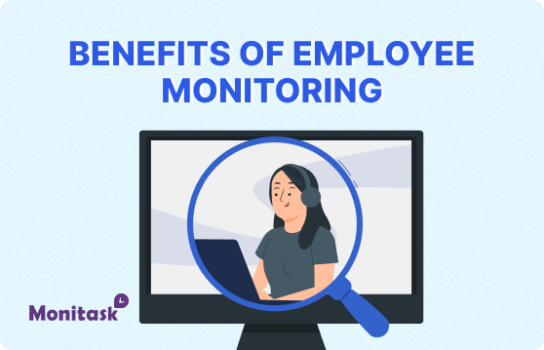Exempt Employee
Understanding Exempt Employees
In the realm of employment law and human resources, the term "exempt employee" holds significant importance. This classification has far-reaching implications for both employers and workers, affecting everything from compensation structures to work schedules and overtime pay. To truly grasp the concept of exempt employees, it's crucial to delve into its definition, legal framework, and practical applications in the modern workplace.
Definition of Exempt Employees
An exempt employee is a worker who is exempt from certain provisions of the Fair Labor Standards Act (FLSA), particularly those related to minimum wage and overtime pay. These employees are typically paid a salary rather than an hourly wage and are expected to complete their job responsibilities regardless of the number of hours worked.
The exempt status is not determined solely by job title or salary level. Instead, it's based on specific criteria outlined by the Department of Labor (DOL). These criteria include the employee's job duties, responsibilities, and compensation level.
Legal Framework: The Fair Labor Standards Act (FLSA)
The FLSA, enacted in 1938, is the primary federal law governing wage and hour standards in the United States. It establishes minimum wage, overtime pay, recordkeeping, and youth employment standards for both the private sector and government workers.
Under the FLSA, employees are generally considered non-exempt unless they meet specific exemption criteria. The act provides several categories of exemptions, including executive, administrative, professional, computer-related, and outside sales exemptions. Each category has its own set of requirements that must be met for an employee to qualify as exempt.
Criteria for Exempt Status
To be classified as exempt, an employee must generally meet three main criteria:
1. Salary Basis Test
Exempt employees must be paid a predetermined and fixed salary that is not subject to reduction based on variations in the quality or quantity of work performed. As of 2024, the minimum salary threshold for exempt status is $35,568 per year or $684 per week. This threshold is periodically adjusted by the Department of Labor to account for changes in the economy and cost of living.
2. Salary Level Test
The employee must earn at least the minimum salary threshold set by the DOL. It's important to note that this threshold can change over time, and employers must stay informed about any updates to ensure compliance.
3. Duties Test
The employee's primary job duties must meet the requirements for one of the FLSA's exemption categories. These categories include:
Executive Exemption
To qualify for the executive exemption, an employee must:
- Primarily manage the enterprise or a department or subdivision of the enterprise
- Regularly direct the work of at least two other full-time employees
- Have the authority to hire, fire, or make recommendations about the employment status of other employees
Administrative Exemption
For the administrative exemption, an employee must:
- Perform office or non-manual work directly related to the management or general business operations of the employer or the employer's customers
- Exercise discretion and independent judgment on matters of significance
Professional Exemption
The professional exemption applies to employees who:
- Perform work requiring advanced knowledge in a field of science or learning, typically acquired through prolonged specialized instruction
- Exercise discretion and judgment in their work
- Perform work that is predominantly intellectual in character
Computer Employee Exemption
This exemption covers computer systems analysts, programmers, software engineers, and other similarly skilled workers who:
- Apply systems analysis techniques and procedures to determine hardware, software, or system functional specifications
- Design, develop, document, analyze, create, test, or modify computer systems or programs
- Design, document, test, create, or modify computer programs related to machine operating systems
Outside Sales Exemption
To qualify for the outside sales exemption, an employee must:
- Have a primary duty of making sales or obtaining orders or contracts for services or facilities
- Customarily and regularly work away from the employer's place of business
Implications of Exempt Status
The classification of an employee as exempt has several important implications for both the employer and the employee:
Overtime Pay
One of the most significant aspects of exempt status is that these employees are not entitled to overtime pay, regardless of the number of hours worked in a week. This means that if an exempt employee works more than 40 hours in a workweek, they are not legally required to receive additional compensation for those extra hours.
Minimum Wage
Exempt employees are not subject to minimum wage requirements. Their salary is expected to compensate them for all hours worked, regardless of the actual number of hours put in.
Work Schedule Flexibility
Exempt employees often enjoy greater flexibility in their work schedules. Since they are paid a salary rather than an hourly wage, they may have more freedom to manage their own time and work hours, as long as they complete their assigned tasks and responsibilities.
Job Security and Benefits
Exempt positions are often associated with higher-level roles within an organization. As a result, these positions may come with greater job security and more comprehensive benefits packages compared to non-exempt positions.
Challenges and Controversies
While the exempt employee classification serves important purposes in the workplace, it is not without its challenges and controversies:
Misclassification
One of the most significant issues surrounding exempt employees is the potential for misclassification. Some employers may incorrectly classify employees as exempt to avoid paying overtime or to sidestep other labor law requirements. This can lead to legal issues and financial penalties for the employer, as well as lost wages for the employee.
Workload and Work-Life Balance
Exempt employees may find themselves working long hours without additional compensation, which can lead to burnout and poor work-life balance. This is particularly true in industries or companies where there's an expectation of constant availability or extended work hours.
Changing Nature of Work
As the nature of work evolves, particularly with the rise of remote work and digital technologies, the traditional boundaries between exempt and non-exempt work are becoming increasingly blurred. This has led to calls for updates to labor laws to better reflect the realities of the modern workplace.
Best Practices for Employers
To ensure compliance with labor laws and maintain a fair and productive workplace, employers should consider the following best practices when dealing with exempt employees:
Regular Classification Reviews
Employers should periodically review their employee classifications to ensure that all exempt employees truly meet the criteria for exemption. This is particularly important when job duties change or when there are updates to labor laws.
Clear Communication
It's crucial to clearly communicate the expectations and responsibilities associated with exempt positions. This includes discussing workload, hours, and the lack of overtime pay.
Fair Compensation
While exempt employees are not entitled to overtime pay, employers should strive to provide fair compensation that reflects the employee's responsibilities and workload. This may include bonuses, additional time off, or other forms of recognition for exceptional performance or extended hours.
Work-Life Balance Initiatives
Implementing policies and programs that promote work-life balance can help prevent burnout among exempt employees. This might include flexible work arrangements, mental health support, or limits on after-hours communication.
The Future of Exempt Employee Classification
As the workplace continues to evolve, discussions about the future of exempt employee classification are ongoing. Some key areas of focus include:
Updating Salary Thresholds
There are ongoing debates about the appropriate salary threshold for exempt status. Some argue that the current threshold is too low and should be raised to better reflect the cost of living and the value of exempt work.
Rethinking Job Duties
As job roles become more complex and multifaceted, there may be a need to reassess how job duties are evaluated for exemption purposes. This could lead to more nuanced or flexible criteria for determining exempt status.
Addressing the Gig Economy
The rise of the gig economy and freelance work has raised questions about how exempt status applies to non-traditional employment arrangements. Future labor laws may need to address these new forms of work more explicitly.
Conclusion
Understanding the concept of exempt employees is crucial for both employers and workers in today's complex labor landscape. While the exempt classification offers certain advantages, such as potential for higher salaries and greater job flexibility, it also comes with challenges, including the risk of overwork and misclassification.
As the nature of work continues to evolve, it's likely that the criteria and implications of exempt status will also change. Employers must stay informed about current labor laws and best practices, while employees should understand their rights and the implications of their employment classification.
Ultimately, the goal should be to create a fair and productive work environment that balances the needs of both employers and employees. By understanding the nuances of exempt employee classification and implementing thoughtful policies, organizations can navigate this complex area of employment law while fostering a positive and compliant workplace culture.


